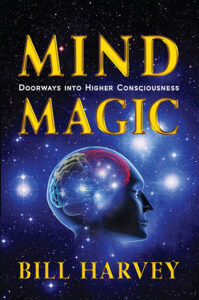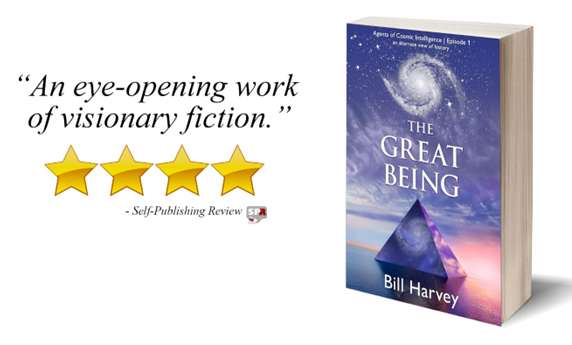Welcome to this week’s Bill Harvey Blog: August 2, 2024

Widespread mental emotional handicaps are not a new thing. Depression, anxiety, violent impulsiveness, sociopathy… they have been with us a long time.
So have inventions or discoveries of ways to improve one’s own use of the mind and feelings. They go back to antiquity. Counting to ten and taking deep breaths when losing one’s temper, for example, probably goes back before written language. In the first millennium of written language appear cogent ideas about better ways of using the mind that could have been passed down by oral tradition for generations. The Rig Veda had been sung for centuries by the time Vyasa first wrote it down. The advice given was quite sophisticated and the lessons taught about cooperation and consideration of consequences before action still to this day have not been learned by billions of us.
The Stoics such as Epictetus wrote down methods in considerable detail and I was amazed to read his Enchiridion written more than two millennia before my book Mind Magic with some of the same ideas, similarly expressed. Buddha’s and Christ’s teachings from millennia ago, as we all know, are at the highest levels of sophistication concerning what we permit to go on in our minds.
It’s not just the sophistication, it’s also the detail in which the method is described to the learner. The mind is extremely tricky and contains a robotical element which one must learn to deal with properly. The presence of this bio-AI was detected by the ancients and is described in the Old Testament as the “hardening of the heart”, which is only one of the ways the robot manifests. However, until Mind Magic in my lifetime of study of the mind and writings about the mind old and new, I have not seen detailed instructions for integrating the bio-AI into a useful member of the mind’s internal community, which is why I wrote Mind Magic. To date I have read many of the most popular as well as many of the least known self-help books and I have not found anything remotely detailed in terms of specific operational instructions as in Mind Magic.
This line of thought was triggered by an experience I had two days ago. I was having a Zoom call with one of my AI expert collaborators and he demonstrated to me a system that within a minute or two took the text of Mind Magic and turned it into a course, complete with tests. This of course was amazing and I am still duly impressed. The one fly in the ointment was the tests. They seemed to oversimplify the teachings into summary words containing no learning value, words like “Meditate”, “Contemplate”, “Use Mindfulness”, “Do Shadow Work”, “Use Affirmations”, “Law Of Attraction”, etc. The AI had scoured the Internet and found things like the ideas in Mind Magic and had assumed that all of the various books and scholarly papers were all giving the same generic advice. That is like summarizing the Old Testament or the words of Jesus into “Be Good” and implicitly assuming that advice was going to solve the whole thing and the person would emerge with a happy mind and life.
I have yet to look at the rest of the course and I expect that most of it will retain the detailed instructions so that all I’ll have to do is to retrain the AI how to pose the questions better. Yet it got me thinking about all of the generalizations and oversimplifications being made across the self-improvement field.
Overall impact of the New Age Movement since the 1970s has been quite positive despite shortcomings. There is a general sense of awareness and tendencies toward openness and respect for others that I did not perceive around me growing up on the streets of Brooklyn, where many kids carried knives and zipguns. The Beatles song “All You Need Is Love” is emblematic of the good that has been done by the human development movement which started in the 1960s. To some extent this has been the humanism movement supporting the logic of goodness as a way of life while the organized religions gradually slipped out of perceived relevancy in the modern world. Without the rise of the human potential movement the world today could be in even darker place, or we might have gotten to present straits much sooner.
Motivational speakers can, without passing on any detailed methodologies for better use of the mind and feelings, achieve short-term and even a sprinkling of long-term effects simply by their confidence, presentation ability, body language, and inspiring stories. Practically any self-help book can have some positive effect. However, without detailed instructions, especially concerning the multiple phenomena one finds in one’s mind, including the robot – which has now been called the inference engine and the prediction engine by Dr. Karl Friston – oversimplified advice will not achieve states of higher consciousness, and can even feed the ego to believe that one is in the Flow state when one is not. The term for this in the 1970s was Spiritual Materialism.
In every phase of life we see that there is a longing to keep things simpler than they actually are. This reductionism is one of the most dangerous temptations that we face. Oversimplifying something complex seems to be a good idea in the short run but then one bangs into the walls that have been ignored away. They didn’t really get removed by ignoring them. Instead, they stopped you when you needed to keep going and now you have to stop and rethink everything. Better to do all that thinking at the outset.
Look for methods, and test those that appeal to you. Identify platitudes and appreciate them as positive reminders, without pretending that they are sufficient on their own to solve problems.
My best to all,
![]()


 “When you are about to see something, your mind automatically searches your memory for a comparable object (note the distinction between you seeing something and your mind having already seen it). If your mind finds something similar enough, it projects the stored image onto the new object so that you do not ever see the new object, but are merely dimly aware that there is a familiar type of object there… As a result of this, you mostly do not perceive your environment, instead perceiving mostly what you expect to perceive, i.e. you usually see your mind’s prediction.”
“When you are about to see something, your mind automatically searches your memory for a comparable object (note the distinction between you seeing something and your mind having already seen it). If your mind finds something similar enough, it projects the stored image onto the new object so that you do not ever see the new object, but are merely dimly aware that there is a familiar type of object there… As a result of this, you mostly do not perceive your environment, instead perceiving mostly what you expect to perceive, i.e. you usually see your mind’s prediction.”



